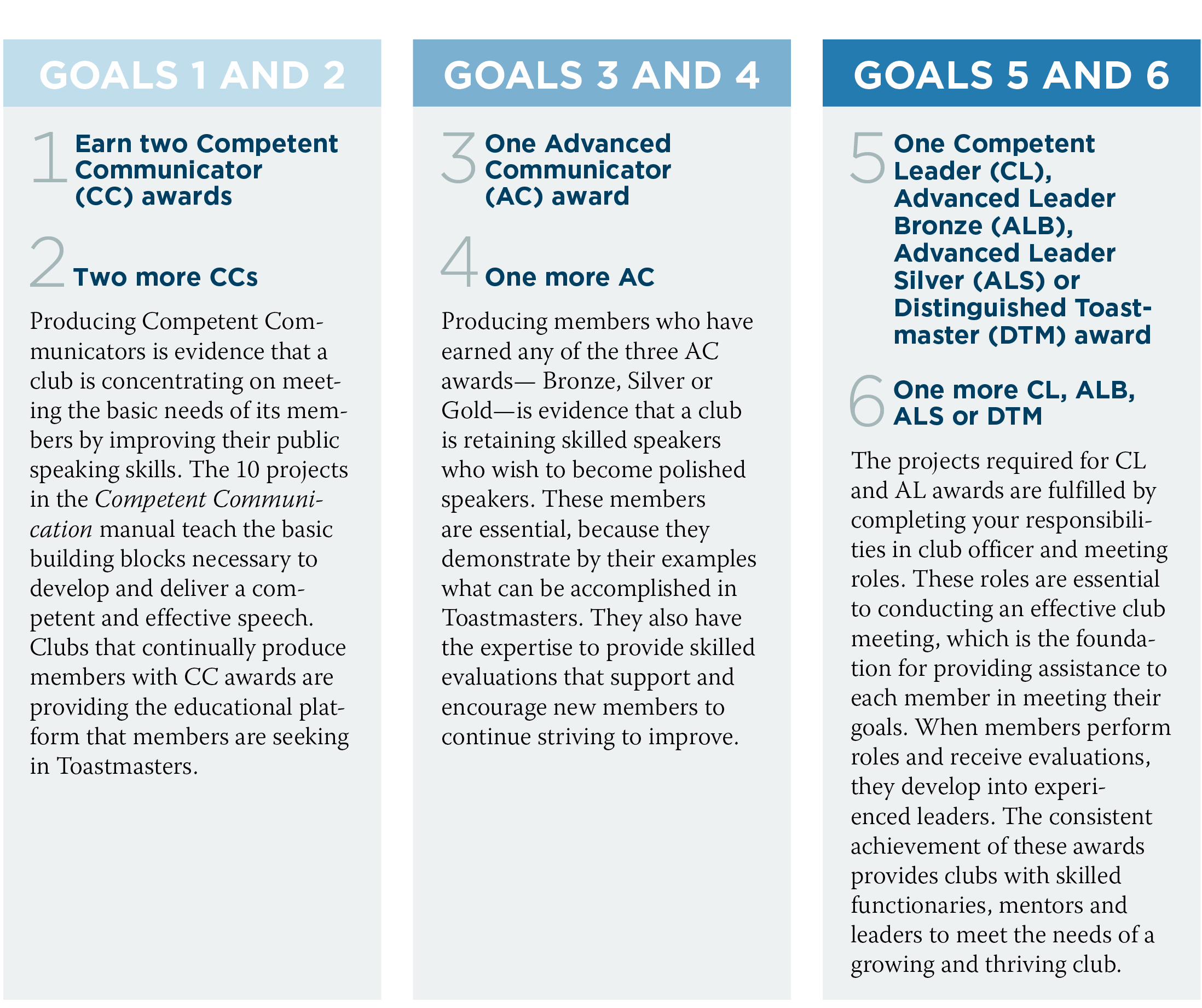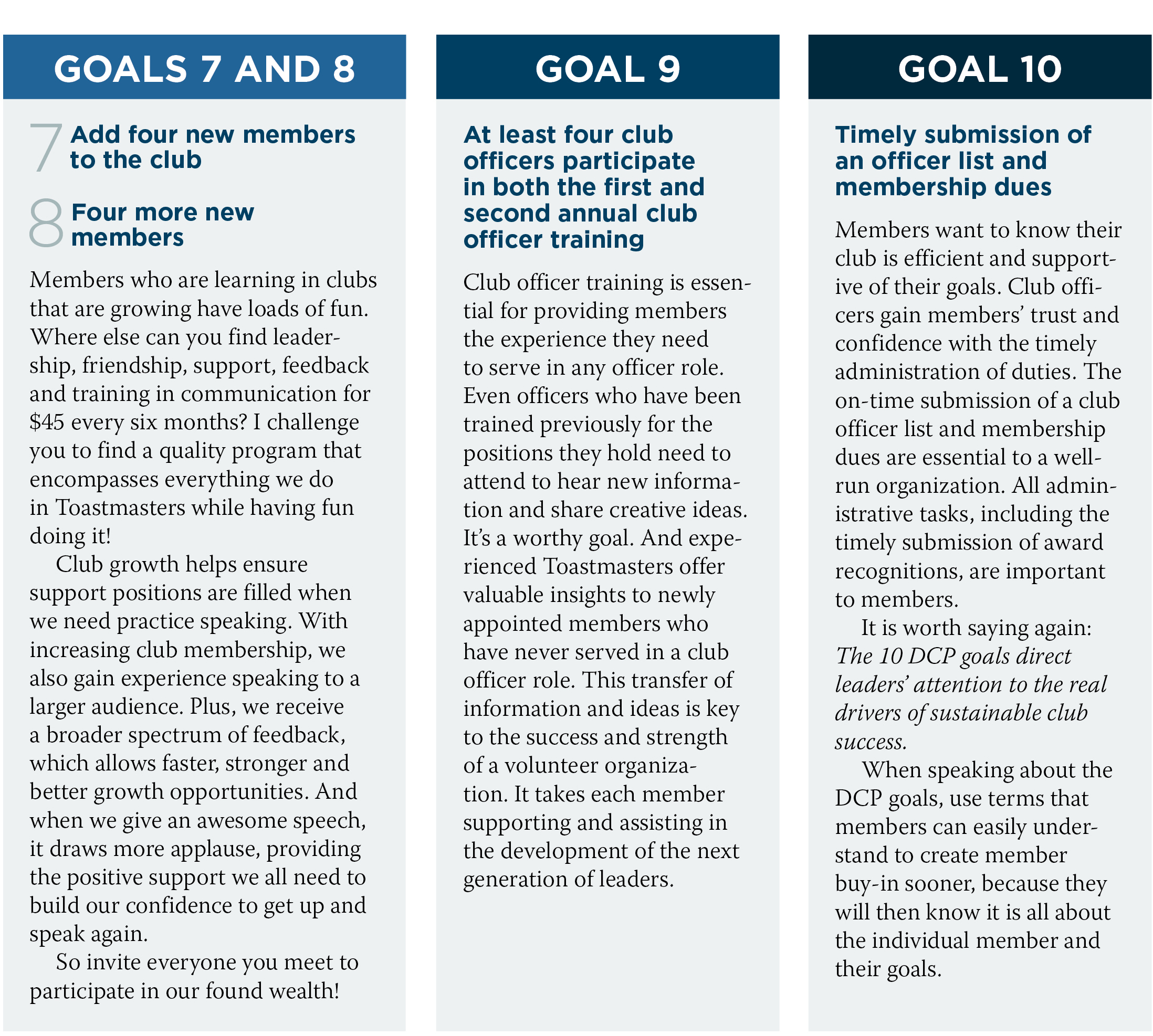In an article for the Harvard Business Review, Dan Ariely wrote that people are motivated by how they are measured, a principle that is backed up by psychologists and economists.
“Human beings adjust behavior based on the metrics they’re held against,” wrote Ariely, author of the book Predictably Irrational: The Hidden Forces That Shape Our Decisions. “Anything you measure will impel a person to optimize his score on that metric. What you measure is what you’ll get. Period!”
Later in the article, he wrote, “What is important are numbers that direct leaders’ attention to the real drivers of sustainable success.”
This concept relates to Toastmasters—specifically, to the 10 goals of the Distinguished Club Program (DCP). I re-worded Ariely’s statement to make it Toastmasters-relevant: The 10 DCP goals direct leaders’ attention to the real drivers of sustainable club success.
Why do clubs sustain success? Because they serve the needs of individual club members, and they do it in ways that can be measured.
Through years of careful research, Toastmasters International identified members’ most important needs and individual goals. They discovered how clubs that consistently enable members to meet their goals are successful and have certain characteristics that can be measured.
Visit the Statistics and Data Hub to see Toastmasters International’s membership reports.

I remember my own experience with the DCP. I had only been a member for a few weeks when the vice president education (VPE) of our club announced we were on track to becoming a “Distinguished” club. Everyone clapped, including me.
“We only need one more DCP by the end of the month,” he said. I thought Wow, I wonder where we get these DCPs. I listened carefully, trying to figure out this new language of Toastmasters.
Having retired from the U.S. Marine Corps and worked 17 years for the U.S. Navy, I can say that the number of abbreviations and acronyms used in these two armed-service branches are mind-numbing. For Toastmasters, it is easy to forget that someone new in your audience may not recognize the terms you use.
While I noticed how Toastmasters business resembles corporate business meetings, and felt this was great for efficiency and productivity, I wondered about my own needs—the reason I joined Toastmasters. What about me—the “What’s in it for me?” (WIIFM) as a member. Meetings started sounding like they were all about the district’s goals. Why should I care about the DCP?
I soon learned the answer. It’s because the recognition—the Distinguished status (or higher) earned by a club—indicates that the club provides the positive and supportive learning -environment that will aid me in meeting my goals.
The 10 DCP goals are identified as characteristics of a quality club. Each goal is carefully chosen to provide the individual member with the highest quality Toastmasters experience. The following examples show a clear path from the DCP to the individual member and explain why the goals are important.

Floyd R. Strayer is Immediate Past President of Progressive Speakers in El Cajon, California, and a member of Sharp Toastmasters in Chula Vista, California.



 Previous
Previous
 Previous Article
Previous Article